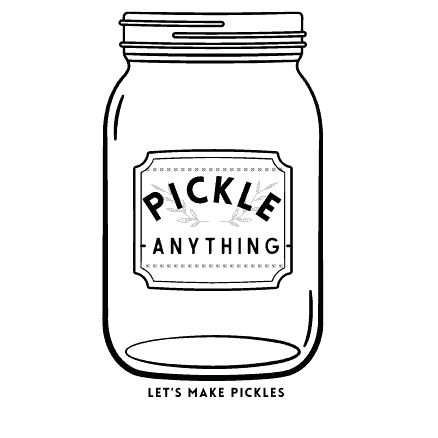Have you ever taken a bite of a Claussen pickle straight from the jar and wondered how they get that fantastic crunch?
You’re not alone! Many people have enjoyed the delicious taste of these popular snacks but have never stopped considering what makes them so unique.
Now, it’s time to uncover the surprising truth behind Claussen pickles and discover if this beloved snack is fermented!

Are Claussen pickles fermented?
No, Claussen pickles are not fermented.
Claussen pickles are made using a brining process—a combination of vinegar, water, salt, and other spices such as garlic, dill, and peppercorns.
This brine solution is placed in jars with the prepared cucumbers and other ingredients, then sealed and refrigerated for several days to allow the flavors to settle.
The pickles are not exposed to air during this time, so they don’t ferment like kraut or sourdough bread.
Why Do Claussen Pickles Have To Be Refrigerated?
Ninety years later, Claus’ great-grandson Edward Claussen had the
https://www.myfoodandfamily.com/brands/claussen
bold idea of refrigerating pickles for the best crunch and with that
Claussen staked their place as the Original Refrigerated Pickle, also
known as the O.P.
Types of Claussen Pickles
Claussen Pickles are a type of pickle known for their tangy and crunchy texture.
They come in various varieties, such as dill spears, kosher dills, hamburger chips, spicy pickles slices, and sweet gherkins.
These pickled cucumbers are made with freshness in mind; they’re always chilled and never heated to retain their crispiness.
The perfect addition to any sandwich or burger!
Ingredients Used to Make Them
Ingredients Fresh Cucumbers, Water, Salt, Distilled Vinegar, Contains Less than 2% of Dried Garlic, Calcium Chloride, Sodium Benzoate (to Preserve Flavor), Spice, Mustard Seed, Natural Flavor, Dried Red Peppers, Polysorbate 80, Oleoresin Turmeric.
What makes Claussen pickles different?
Claussen pickles are different from other brands because they are made with a unique brining process.
This process combines vinegar, salt, water, and spices such as garlic, dill, and peppercorns in a Mason jar with the cucumbers.
The jars are sealed and then refrigerated for several days to allow the flavors to settle and the natural fermentation process to occur.
This results in crunchier pickles than traditional pickles that use vinegar alone or are processed with heat. Additionally, Claussen pickles have no artificial colors or flavors added.
The Pickling Process
The pickling process is a method of preserving food.
It involves submerging vegetables, fruits, and even some meats into an acidic liquid such as vinegar or brine for a specific time.
This mixture helps prevent the growth of microorganisms that cause spoilage and gives the food item a unique flavor.
The most common ingredients in pickling include garlic, dill, bay leaves, peppercorns, and mustard seeds.
Pickled foods can last up to several months when stored correctly in an airtight container in the refrigerator.
Health Benefits of Eating Claussen Pickles
Eating Claussen pickles may have some health benefits.
The brining process used to make Claussen pickles encourages the growth of probiotic bacteria in the cucumbers, which can help promote gut health and aid digestion.
Claussen pickles also provide essential nutrients like vitamins A and K, C, iron, potassium, and fiber.
Claussen pickles are also lower in sodium and calories compared to other pickles.
What is the difference between Pickled and Fermented?
The difference between pickling and fermentation lies in the types of bacteria used.
Pickled foods are preserved using vinegar and salt, while fermented foods rely on naturally-occurring bacteria to preserve them.
When pickling, the food is exposed to acidic vinegar, which prevents the growth of harmful bacteria and encourages the growth of beneficial bacteria.
With fermentation, however, no acid is involved—instead, enzymes produced by lactic acid bacteria break down complex molecules into simpler compounds.
This process produces probiotics which can be beneficial for gut health.
